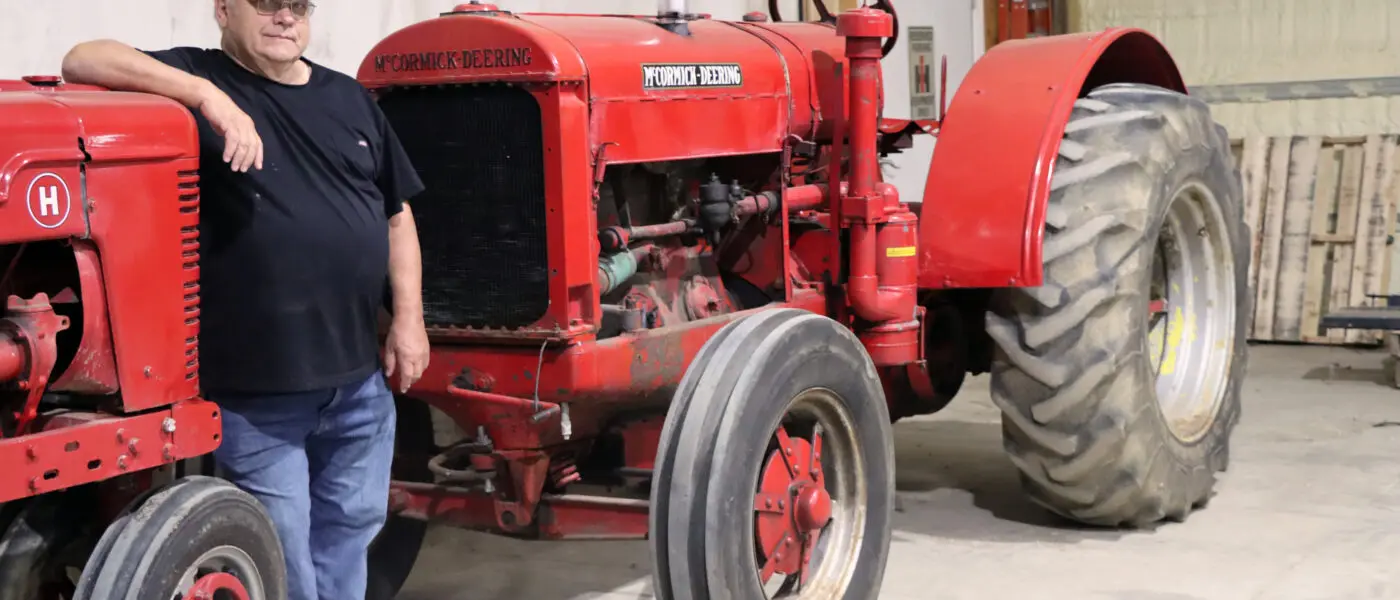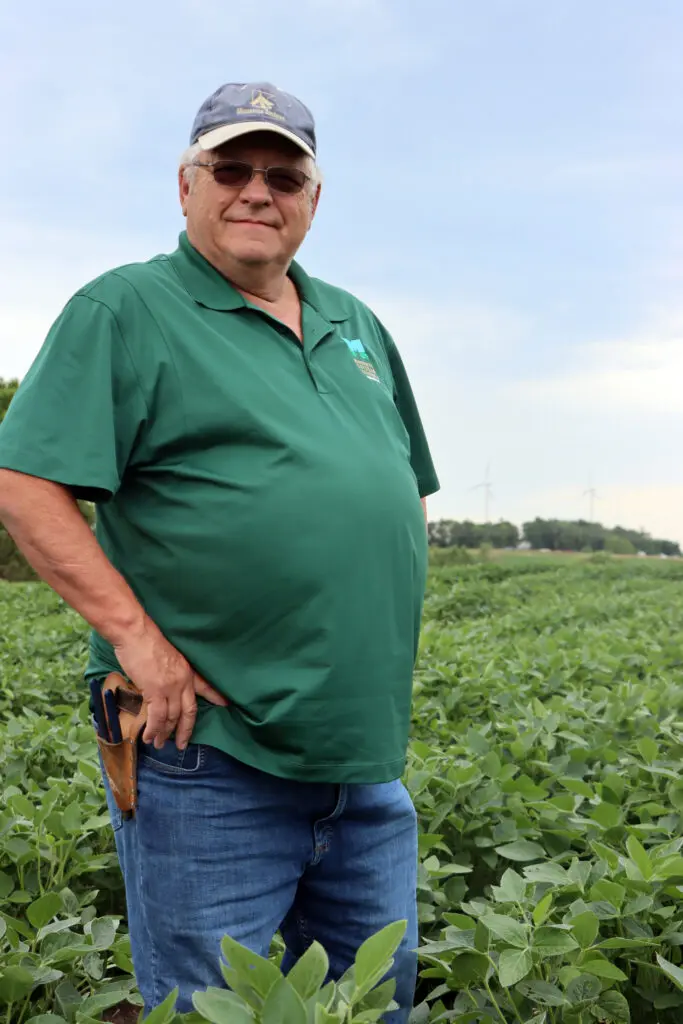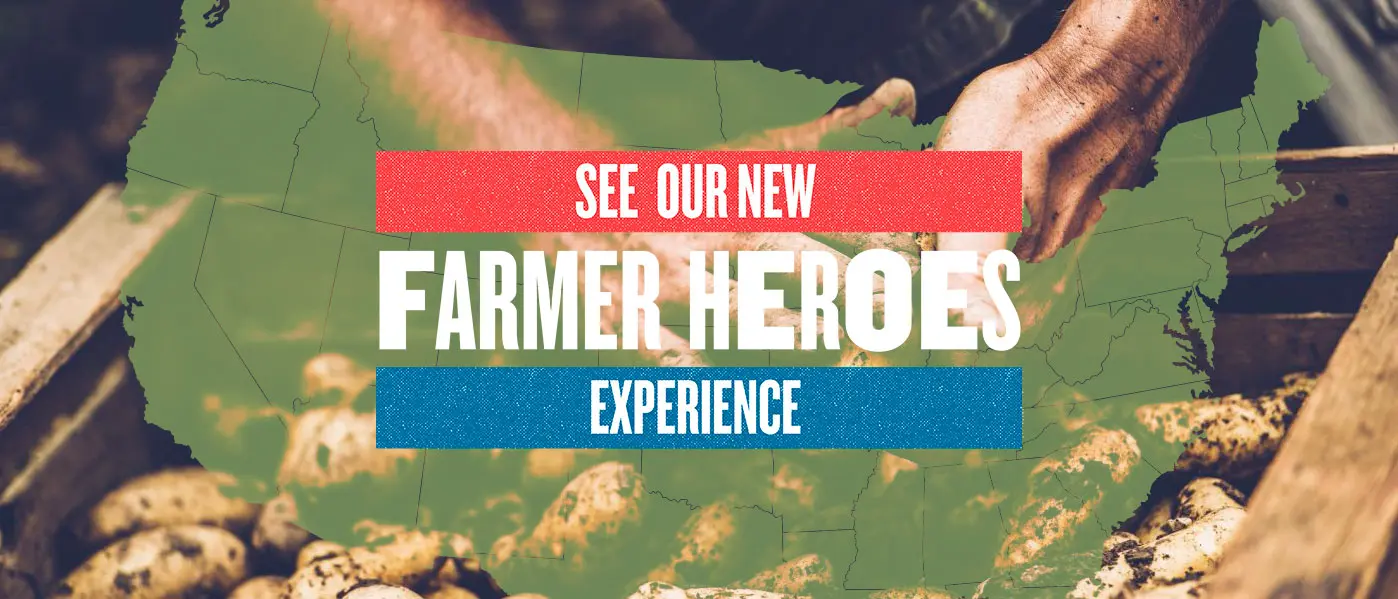Bob Worth grew up on the same Minnesota farm he farms today, 55 years later and at the age of 73. The farm’s 480 acres have been in his family since 1955, and through every high and low, the farm has remained a symbol of persistence and generational resilience. Bob began farming alongside his father as a young boy, returned to the land after National Guard training, and eventually took over the operation in 1981. His son later joined him, and for a time it was all three generations working together. Worth Farms grows corn and soy on the farmstead acreage, in addition to up to 2,100 rented acres in and around Lake Benton, in the southwest corner of Minnesota.
What draws many people to Bob’s story is not exclusively the crops he grows or the acres he tends, but rather his impactful work in mental health advocacy. Resilience in farm life is not only continuing through financial hardships and burdens, but also keeping safe and healthy during the dark and often invisible crises that farmers quietly face.
In 1986, during the peak of the Farm Crisis, Bob found himself sitting in a bank office—the same bank that he and his dad had always used. The banker came into the room, closed the door and told him the bank could no longer support the farm. Like so many others at the time, Bob was a young farmer with a family to support, the family agricultural legacy on his shoulders and few options. The farm economy had collapsed, interest rates were sky-high, agricultural banks were failing, and the future was not certain for anyone in agriculture, especially smaller farms. Bob says, “Farmers all around us were losing their land and some took their own lives.”
“Farmers are a unique breed, and very, very private people. We love to help our neighbors, but we don’t like talking about our own issues, especially health issues.”
Luckily, Bob was introduced to another lender who worked with him. “You gotta find a lender you can work with. I stayed with that banker the whole time, right up until his retirement.” With additional support, Bob was able to keep the farm afloat. “My mom and dad helped me out. That’s the only reason I kept my farm. And I’m doing the same for my son now.”
But the Farm Crisis left its mark. Bob says he soon fell into a depression. He explains that he had very little motivation to do anything, which is a very difficult burden for anyone and especially a farmer, since farming requires constant work and attention. Bob explains, “Farmers are a unique breed, and very, very private people. We love to help our neighbors, but we don’t like talking about our own issues, especially health issues.” Bob says the only reason he got help is because his wife insisted he visit a doctor. That decision, and a young medical doctor who was open to treating mental health, changed his life for the better as he was soon able to treat his depression and turn his life and mindset around.
For decades, Bob kept that part of his story private. Like many farmers, he was taught to keep his personal struggles to himself. In 2018 when the American Soybean Association began to speak up about farmer mental health, they asked him to be part of the effort; Bob began to understand the need for sharing his story. Since then, he has become a passionate and unrelenting advocate for mental health awareness in agriculture. He stresses the need for speaking up and sharing stories with one another and building valuable connections. He mentions that silence can be extremely dangerous, especially if someone is struggling.
He travels to Washington, D.C., twice a year with the American Soybean Association. He speaks at conferences. He records radio ads with other farmers, encouraging those who are struggling to seek help. One ad reached a listener who later found Bob at a local farm event and told him, “You saved my life.”
In addition to being a farmer mental health advocate, Bob is a strong voice for young and beginning farmers. Bob notes, “The average age of a farmer in the US is [close to] 60 years old, and I would certainly like to see that number go down, but it seems impossible.” With today’s high land and equipment costs, he knows how tough it is to get started without family support or guidance. He says, “I don’t have much debt, but young farmers have to take on a lot of debt to get started. With the cost of inputs like seed, fertilizer, equipment, rent for land, insurance, you’re losing $100-200 an acre. Young farmers just don’t have the reserve to survive these high costs,” he says. “The same thing happened in the ‘80s.” Bob’s focus is on preserving the tradition of family farming and showing the importance of small-scale farming. “It’s all small family farms around us—no corporate farms. We want that to continue to be the case.”
Worth Farms has done its part in that crucial act of generational transfer. “About 16 or 17 years ago, my son moved onto the farm and my wife and I moved about a mile away in the town. He always wanted to live on the home farm, so we set up a trust and that land will continue to stay in the family,” he explains.
To Bob, the future of farming depends not just on innovation, markets or trade. It depends on people. It depends on helping one another, speaking up when it matters, and making sure no farmer ever feels alone in their struggle. That is why he never says no to telling his story, no matter how many times he has told it.
“911 is extremely important,” Bob says, “but 988 [the suicide and crisis lifeline] is just as important.” That message is something he stresses in his advocacy work, reminding farmers across the country that help is just a phone call away. The mental wellbeing of those who feed America is something that is very relevant and important as farmers continue to face challenges in the years after the 1980s Farm Crisis, when Bob found himself struggling.






